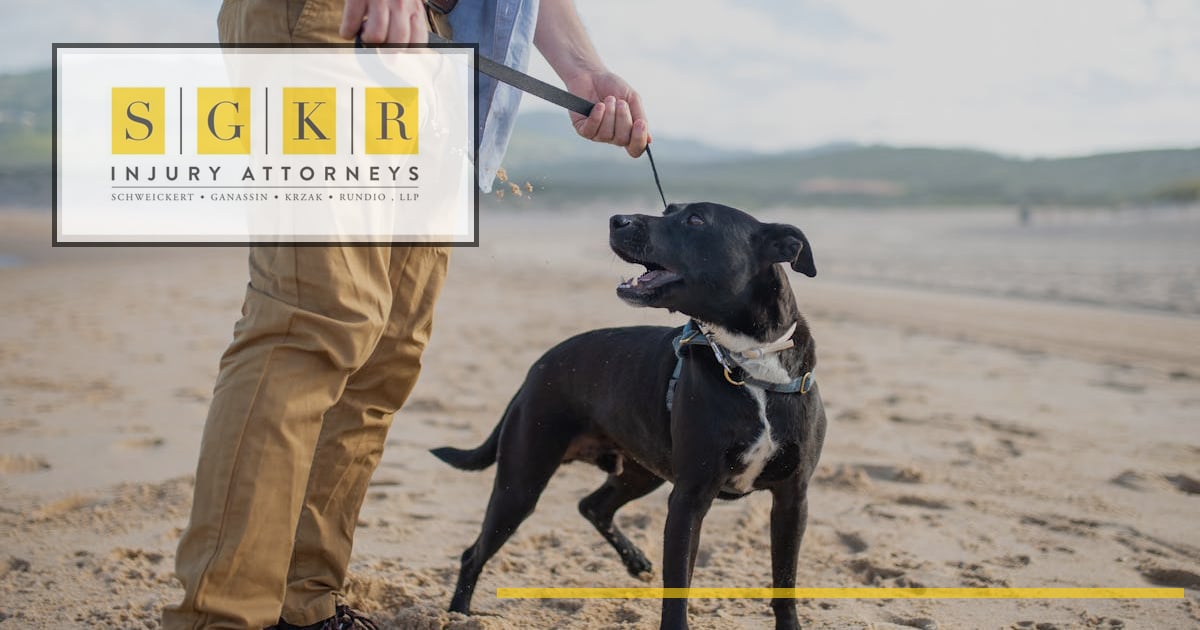Is a Dog Owner Always Liable for a Bite?

What happens when a dog bites someone? Is a dog owner always liable for a bite, including medical bills and related expenses a victim incurs? In some states, pet owners are not held responsible for an initial incident under a “one-bite” law.
But does Illinois follow those rules? At Schweickert Ganassin Krzak Rundio, LLP, we have seen the damage a bite can cause to innocent victims. Let’s look at what happens when a dog’s playful bark turns into a sudden bite and what Illinois law says about liability in these situations.
The Legal Definition of Dog Owner in Illinois
In many places in Illinois law, like 510 ILCS 5/1, it defines “dog owner” as more than just the person who purchased or adopted the dog. In fact, it can include anyone who has a stake in the dog’s well-being, such as:
- Co-owners
- Temporary custodians, such as pet sitters or dog walkers
- Any individual in possession of the canine at the time of an incident
For example, if you entrust your canine to a dog walker or pet sitter and it causes harm to someone while in their care, those individuals could potentially be held liable for any resulting injuries.
Also, if a friend is watching your dog and it bites someone, they could also be held responsible for any damages. Under the law, anyone who is responsible for its care and control at the time of an incident should be held accountable for any harm that their pet causes.
For that reason, all owners must be aware of their legal responsibilities. They need to take steps to ensure that their pet is properly supervised and under control at all times. Sometimes, that may even mean taking necessary precautions to prevent the dog from causing harm to others.
Determining Liability for Canine Attacks
In most states, dog owners are only responsible if they have a reason to believe their canine might attack someone. For example, if it has bitten someone in the past, the animal is more predisposed to biting. This is often called a “one-bite” law. In essence, the dog gets one bite. After that, legal action can be taken.
However, Illinois takes a more stringent approach to protect bite victims. Under the law, Illinois follows strict liability. With that, it places the responsibility for the attack on the shoulders of the dog owner.
According to 510 ILCS 5/16, “If a dog or other animal, without provocation, attacks, attempts to attack or injures any person who is peaceably conducting themselves in any place where they may lawfully be, the owner of such dog or other animal is liable in civil damages.” In simple language, the owner is liable for damages if their pet bites someone without provocation, even if it’s the first time.
For that reason, all dog owners in Illinois must take extra precautions to make sure their canines do not cause harm to others. The strict liability framework clarifies that owners are responsible for their dogs’ actions, regardless of their prior knowledge of their pets’ behavior.
Compensation for Dog Bites
Bites can range from minor scratches to life-altering injuries. There are different avenues for compensation for victims. Like any personal injury case, those hurt can seek compensation for economic damages, such as:
- Medical bills
- Lost wages
- Disability
- Disfigurement
Unfortunately, even a minor nip can escalate into a costly medical ordeal. Sometimes, these attacks can cause long-term scarring and nerve damage.
Along with physical damage, emotional trauma often accompanies physical wounds, especially when the victim is a child. For example, a child who once loved dogs may now develop a fear of them after experiencing a bite. Often, these victims may experience anxiety, depression, post-traumatic stress disorder (PTSD), or other mental health issues as a result of their injury.
Will Insurance Policies Cover These Attacks?
When it comes to dog bites, homeowners’ and renters’ insurance policies usually cover the legal expenses up to the policy limits. However, some insurance companies may have certain restrictions in place that can affect coverage.
For example, some may ask homeowners to sign a dog bite waiver that limits their liability in case of any incidents. Additionally, some providers may refuse coverage for certain breeds deemed high-risk, such as pit bulls.
Preventing Dog Bites
As a pet owner, it is your responsibility to prevent dog bites. Some of these tips can help to prevent and reduce the concurrence of these incidents:
- Socialization: You will want to socialize your dog early during puppyhood. Make sure to expose it to various people, animals, and environments so it becomes familiar with them. Positive interactions can reduce fear and aggression, stopping bites before they happen.
- Supervise interactions: if you have a dog, you will always want to supervise interactions between them and children. Sometimes, children may not know how to approach canines calmly and respectfully. Even the gentlest dog can react if provoked.
- Train and supervise in public places: Basic training is essential for all dogs. When you put your pet through basic training and reinforce commands consistently throughout their life, you can keep your canine under control. Along with that, always keep your dog on a leash, especially if there are leash laws. With a leash, you can make sure it doesn’t get into any trouble and minimize the risk of biting someone.
Remember, any dog can bite, regardless of breed. Since Illinois puts the liability on the owner, following these tips can reduce the possibility of your canine attacking someone and you being held responsible for their damages.










